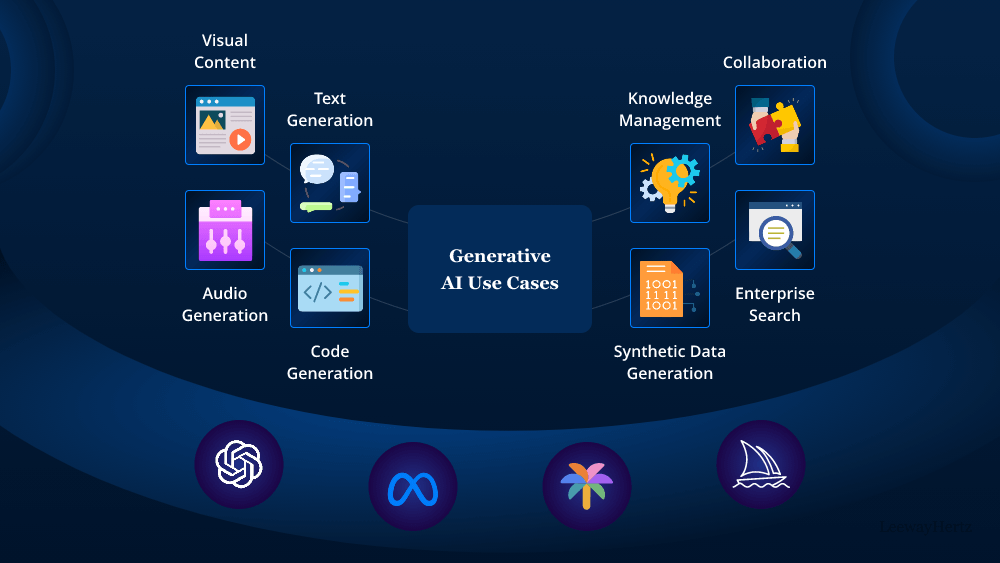Generative AI: Use cases, applications, solutions and implementation
Generative AI demonstrates versatile applications across diverse industries, leveraging its capacity to create novel content, simulate human behavior, and generate innovative outputs based on learned patterns.


Generative AI for contract management: Overview, use cases, implementation strategies and future trends
Explore how generative AI in contract management enhances efficiency, streamlines workflows, and drives better business outcomes across various industries.

Generative AI for market research and intelligence: Use cases, benefits and future outlook
Generative AI transforms market research and intelligence by streamlining data analysis and enhancing decision-making processes.

Generative AI for recruitment and talent acquisition: Approaches, use cases, benefits and future outlook
Integrating generative AI into recruitment and talent acquisition can take different forms, each offering unique benefits based on a company’s resources, needs, and goals.

Generative AI in customer success: Integration, use cases, challenges, ROI, and future outlook
Generative AI is set to transform the landscape of customer success, offering matchless capabilities in streamlining operations and enhancing customer engagement.

Generative AI in healthcare: Integration, use cases, challenges, ROI, and future outlook
The integration of generative AI in healthcare is more than just a technological upgrade—it’s a pivotal transformation in how care is delivered and managed.

Generative AI in internal audit: Importance, use cases, implementation strategies and future trends
Generative AI significantly impacts internal audit practices by enhancing risk evaluation, monitoring compliance, and boosting operational efficiency.

Generative AI in hospitality: Integration, use cases, challenges, and future outlook
Generative AI improves customer experiences by offering personalized services that boost guest loyalty and satisfaction.

Decision intelligence: Benefits, applications, implementation, and future trends
Decision Intelligence (DI) is a data-driven approach to decision-making that leverages advanced analytics, machine learning, and artificial intelligence (AI) to empower organizations with actionable insights.

How AutoML is transforming AI: The Concept of ‘AI Creating AI’
AI creating AI” through AutoML is transforming the field, expanding beyond human-led processes to make AI development more accessible and efficient.

Structured outputs in LLMs: Definition, techniques, applications, benefits
Structured outputs in large language models (LLMs) refer to the ability of these models to generate responses in specific, predefined formats rather than just free-form text.

Causal AI: Importance, use cases, benefits, challenges and implementation strategies
Causal AI is a branch of artificial intelligence focused on understanding and determining cause-and-effect relationships rather than merely identifying patterns or correlations.

ReAct Agents vs Function Calling Agents
ReACT and function calling agents represent two distinct but powerful approaches to extending the capabilities of LLMs, each with its own strengths and weaknesses.



